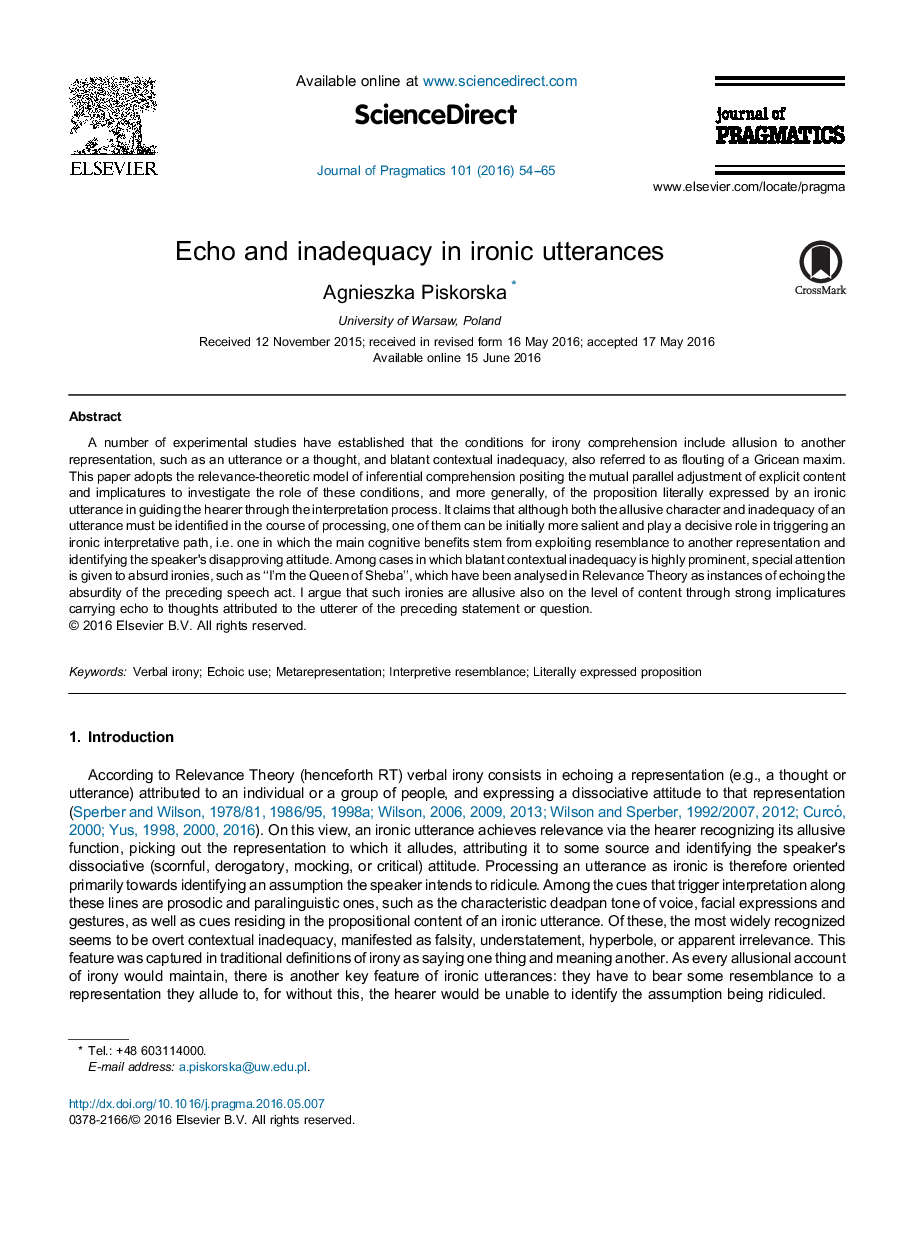| Article ID | Journal | Published Year | Pages | File Type |
|---|---|---|---|---|
| 7297829 | Journal of Pragmatics | 2016 | 12 Pages |
Abstract
A number of experimental studies have established that the conditions for irony comprehension include allusion to another representation, such as an utterance or a thought, and blatant contextual inadequacy, also referred to as flouting of a Gricean maxim. This paper adopts the relevance-theoretic model of inferential comprehension positing the mutual parallel adjustment of explicit content and implicatures to investigate the role of these conditions, and more generally, of the proposition literally expressed by an ironic utterance in guiding the hearer through the interpretation process. It claims that although both the allusive character and inadequacy of an utterance must be identified in the course of processing, one of them can be initially more salient and play a decisive role in triggering an ironic interpretative path, i.e. one in which the main cognitive benefits stem from exploiting resemblance to another representation and identifying the speaker's disapproving attitude. Among cases in which blatant contextual inadequacy is highly prominent, special attention is given to absurd ironies, such as “I'm the Queen of Sheba”, which have been analysed in Relevance Theory as instances of echoing the absurdity of the preceding speech act. I argue that such ironies are allusive also on the level of content through strong implicatures carrying echo to thoughts attributed to the utterer of the preceding statement or question.
Related Topics
Social Sciences and Humanities
Arts and Humanities
Language and Linguistics
Authors
Agnieszka Piskorska,
